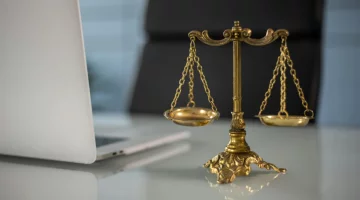Understanding the Difference Between Possession and Trafficking Charges
In Los Angeles, drug-related offenses can vary significantly in severity, with possession and trafficking charges carrying distinct legal implications. Possession typically involves smaller quantities intended for personal use and may result in lighter penalties such as fines or rehabilitation programs. In contrast, trafficking charges relate to the distribution, sale, or transportation of larger quantities of controlled substances, often leading to severe penalties, including lengthy prison sentences and substantial fines.
Understanding the distinction between these charges is critical, as the amount of the substance, intent, and circumstances surrounding the case can determine how it is prosecuted. Consulting a Los Angeles drug crimes lawyer ensures that your case is thoroughly evaluated. An experienced attorney can help challenge evidence, negotiate plea deals, or build a strong defense to protect your rights, regardless of the nature of the charges. Having knowledgeable legal representation is essential to navigating California’s complex drug laws.
Definitions and Basic Differences
Possession involves the possession of substances for use; individuals facing this charge may have small amounts meant for personal consumption only. On the other hand, trafficking is about the distribution or selling of drugs and indicates a more significant involvement in the drug trade, with the intention of larger-scale distribution.
The main difference lies in the purpose and amount involved in the situation at hand; ownership usually pertains to quantities, whereas dealing concerns amounts with the aim of selling or distributing them. It is essential to grasp these distinctions as they result in fair outcomes.
The Legal Ramifications of Possessing Charges
Being caught with possession usually results in more consequences than trafficking charges do. Those consequences may involve paying fines, going on probation, or serving a jail term. In areas of the law system, first-time offenders are offered chances to join rehabilitation programs that face punishment directly by focusing on education and treatment.
Penalties for offenses related to substances like drugs or alcohol can vary depending on the substance involved and the individual's past criminal history. Individuals who have convictions for offenses may be subject to more severe penalties to emphasize the significance of knowing one's legal status and available defense options. If you need more help, you can consider hiring a lawyer for more guidance.
The Impact of Being Accused of Human Trafficking
Being involved in trafficking usually leads to consequences in the eyes of the law because it is seen as a crime that affects communities and society at large. People convicted of trafficking could face prison terms and hefty fines while also ending up with a criminal record. The seriousness of the punishment often varies based on factors like the quantity and nature of the substance involved and whether there's a history of criminal activities.
Sometimes, situations pertaining to trafficking offenses could potentially result in charges, like conspiracy or money laundering, which could make the legal process more complex and highlight the importance of having a knowledgeable legal representative by your side.
Influences on Pricing Factors
Elements impact whether an item is classified as possession or trafficking. A significant factor is the quantity involved; larger amounts tend to indicate an intention to distribute. Other indicators include packaging materials, like bags or scales, that may suggest trafficking activities. Additionally, evidence of communication, such as text messages or financial transactions, can further bolster allegations of trafficking.
The location where you are found with substances might impact the charges you face, as laws on possession and trafficking differ across jurisdictions, resulting in legal interpretations and consequences.
Ways to Defend Yourself Legally and Tactics to Use in Battles
Successfully fighting possession or trafficking allegations demands a comprehension of nuances. Tactical legal approaches could involve contesting the proof provided, raising doubts about the legality of searches, or challenging the alleged intention to distribute. In instances of possession accusations, accused individuals may assert ignorance or claim ownership by another party.
In cases involving trafficking allegations, defense attorneys frequently emphasize the need to disprove intent or showcase instances of entrapment. A competent legal team has the potential to greatly influence a case's results, underscoring the significance of engaging with advisors.
The Importance of Intent
Distinguishing possession from trafficking hinges on intent in proceedings. In trafficking scenarios, prosecutors must establish an intent to distribute by showing that the accused intended to sell or circulate illicit substances; lacking compelling proof of intent could lead to reduced or dropped charges.
Recognizing the importance of intent can assist individuals accused in constructing an argumentation strategy to refute the prosecution's accusations and improve their likelihood of securing positive results.
Conclusion
Understanding the difference between possession and trafficking allegations is crucial for individuals facing issues in this field of law. Being aware of these variances helps people grasp the repercussions and consider legal defenses. Having access to guidance gives defendants the tools they need to secure favorable outcomes within the justice system. By clarifying these accusations, this article aims to enhance comprehension of their significance.
More to Read:
Previous Posts:



